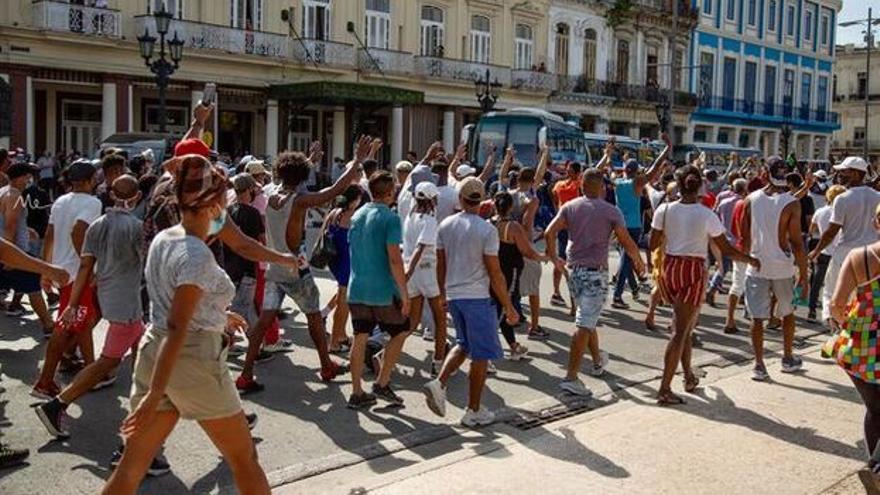
![]() 14ymedio, Madrid, 23 May 2023 — Joe Biden’s Administration has once again included Cuba in the list of countries that “do not fully cooperate” in the fight against terrorism, a decision that maintains the line of previous years.
14ymedio, Madrid, 23 May 2023 — Joe Biden’s Administration has once again included Cuba in the list of countries that “do not fully cooperate” in the fight against terrorism, a decision that maintains the line of previous years.
“I hereby determine and certify to Congress that the following countries are not fully cooperating with the anti-terrorist efforts of the United States: Cuba, Democratic People’s Republic of Korea (North Korea), Iran, Syria and Venezuela,” wrote the Secretary of State, Antony Blinken in the notice, published on Tuesday in the Federal Registry.
The British agency Reuters, which has advanced the news, consulted with the State Department over the reasons that have led to keeping Cuba on this list, but for the moment has not received a response.
Cuba’s reaction has not been long in coming. “The mendacious accusations against Cuba regarding terrorism are an abominable crime that the United States has practiced without scruples and that, with opportunism, it uses as a tool of political coercion,” the Minister of Foreign Affairs, Bruno Rodríguez, wrote on his Twitter account.
It is the third consecutive year that the State Department, which must provide the list to Congress every year, includes the Island in this category, different from that of states that sponsor terrorism, which has not yet been decided. In 2020, the Government of Donald Trump added Cuba to this list for the first time since 2015. On that occasion and later, the State Department attributed it to the regime’s refusal to extradite to Colombia the guerrillas of the National Liberation Army who were in Havana, as Bogotá requested after an attack that left more than twenty dead. The Cuban government affirmed that the protocol of the talks prevented it, but the reason did not convince Washington, which cites this reason in subsequent reports.
It is joined by the protection that, according to the United States, Cuba offers to criminals who are wanted and claimed in their countries for crimes linked to terrorism.
Both reasons are also alleged from Washington when adding the Island to the list of states that sponsor terrorism, which is pending an update. Although very similar, the consequences are more serious for this second case.
According to the State Department, the marketing or granting of export licenses for defense items and services with countries that are on the list of states that do not cooperate with terrorism is prohibited.
Meanwhile, in the case of terrorist sponsoring states, “people and countries that enter into commercial deals are penalized, US foreign assistance is limited, exports and sales in the defense area are prohibited and certain controls are established on exports of dual-use items.”
The Cuban government has been fighting for years to be removed from these listings that hinder foreign trade, and its hopes were placed in the Joe Biden Administration. The Democrat, who at the beginning of his mandate hinted that he would study a change in policy towards the Island, not only followed the line of his predecessor, Donald Trump, but also issued new sanctions following the repression unleashed by the regime against the peaceful protests of July 11, 2021.
Translated by Regina Anavy
____________
COLLABORATE WITH OUR WORK: The 14ymedio team is committed to practicing serious journalism that reflects Cuba’s reality in all its depth. Thank you for joining us on this long journey. We invite you to continue supporting us by becoming a member of 14ymedio now. Together we can continue transforming journalism in Cuba.
